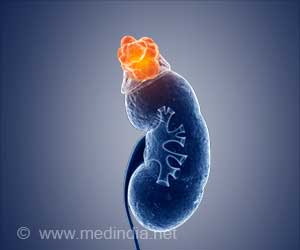Clinically resistant Neuroblastomas with anaplastic lymphoma kinase (ALK) aberrations seems to be sensitive pre-clinically to the third-generation ALK inhibitor lorlatinib.

‘Lorlatinib demonstrates high potency across acquired anaplastic lymphoma kinase (ALK) -activating mutations in adult cancers, including those found in neuroblastoma.’





A notoriously challenging disease to cure, neuroblastoma is characterized by a variety of types and subtypes caused by separate and interacting gene mutations, which only adds to the complexity of devising rational and effective therapies.High-Risk Neuroblastoma: Toward More Cures and Better Outcomes
Patients with high-risk neuroblastoma have a genetic alteration in the ALK gene that made targeted treatment options for this lethal cancer ineffective. Based on this, COG launched a clinical trial for children with neuroblastoma that repurposed crizotinib, an ALK inhibitor that was already approved by the FDA to treat adults with a subtype of lung cancer caused by abnormalities in the ALK gene.However, data from the phase 2 COG trial showed that children with neuroblastoma had a response rate of only about 15%, underscoring the need for a next-generation ALK inhibitor that would be more effective.
After screening numerous anti-ALK agents, the researchers discovered in preclinical tests that lorlatinib, an ALK and ROS-1 inhibitor, surpassed the results seen with crizotinib. Leveraging that data, the researchers were able to test the safety, tolerability, and anti-tumor activity of lorlatinib in a first-in-child NANT Consortium Phase 1 trial in children, adolescents, and adults with ALK-driven refractory/relapsed neuroblastoma.
Lorlatinib is Safe and Effective for Relapsed/Refractory High-Risk Neuroblastoma
Approximately 30% of patients under the age of 18 responded to the drug, and approximately 67% of patients over 18 responded. Patients under the age of 18 had a better response in combination with chemotherapy, with 63% of patients responding to the combined treatment.Researchers noted that younger patients treated with lorlatinib alone – particularly those with amplification of an oncogene called MYCN – had fewer responses compared to older patients. They suspect this could reflect the heterogeneity within the tumor in these patients.
Swiftly moving this drug upfront for the subset of patients with ALK alterations provides an opportunity to go after a key driver of this disease to prevent relapse. The safety profile of lorlatinib across all ages was similar in scope.
Advertisement
This serves as a paramount example across all pediatric cancers, where researchers learn from the science and patients to make decisions in real-time to fast-track the development of new agents when there is potential for substantive impact.
Advertisement
Source-Eurekalert















